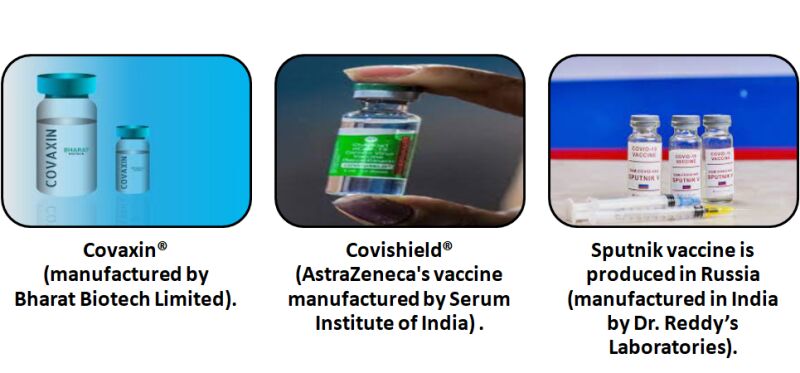Vaccines contain weakened or inactive parts of a particular disease-causing organism (antigen) that triggers an immune response within the body. This weakened version will not cause the disease in the person receiving the vaccine, but it will prompt their immune system to respond much as it would have on its first reaction to the actual pathogen.

Why get vaccinated?









What to do in case of severe side effects?
In case of any discomfort or complaint, ask the beneficiary to visit the nearest health facility and/or call the health worker whose phone number is given in the Co-WIN SMS received after vaccination.

Vaccine registration and administration



Developing a vaccine takes years. But this time our scientists have developed a vaccine against the novel coronavirus in such a short time. How was this possible?
Developing a vaccine generally involves years of research. First, we need a vaccine candidate that is evaluated in animals for its safety and efficacy. After a vaccine candidate passes a pre- clinical trial, it enters the clinical trial phase. While scientists have worked round the clock in the laboratory, even regulatory approvals which used to take several months have been fast tracked. It helped eliminate all the time lapses between the pre-clinical and clinical trial stages. Earlier, the vaccine development involved a series of steps, but in the case of the coronavirus vaccine, the scientists and regulators worked in tandem, accelerating the whole process without compromises on any protocols and any step.
Is it necessary for a COVID-19 recovered person to take the vaccine? And if I had COVID-19 infection and was treated, why should I receive the vaccine?
Yes, it is advisable to receive the complete schedule of COVID-19 vaccine irrespective of past history of infection with COVID-19. This will help in developing a strong immune response against the disease. Development of immunity or duration of protection after COVID-19 exposure is not established therefore it is recommended to receive vaccine even after COVID-19 infection. Wait for at least 4-8 weeks after recovery from COVID symptoms before getting the vaccine. Recent guidelines suggest getting Covishield 6 months after an active infection.
What are the contraindications for receiving a vaccine for COVID-19?


Are there any preventive measures and precautions that one needs to follow at the session site?
You are required to rest at the vaccination centre for at least half an hour after taking the COVID-19 vaccine. Inform the nearest health authorities/ANM/ASHA in case you feel any discomfort or uneasiness subsequently. Remember to continue following key COVID-19 appropriate behaviours like wearing of mask, maintaining hand sanitization and physical distance.
Is the vaccine contraindicated in person with chronic diseases like Cancer, Diabetes, Hypertension, chronic kidney disease, heart disease, lipid disorders etc.?
Chronic diseases and morbidities like the cardiac, neurological, pulmonary, metabolic, renal and malignancies etc. are not contraindicated. In fact, Persons with one or more of these comorbid conditions are considered among the high-risk category for COVID-19 illness. The benefit of COVID-19 vaccines to reduce the risk of severe COVID-19 disease and death is for those who have these comorbidities. They need to get COVID-19 vaccination. Overall, the vaccine is safe and efficacious in adults with comorbidity.
Are there any common side effects of this vaccine?
The COVID 19 vaccines will be safe and effective but may have minor side effects like fever, pain, etc. at the injection site. These effects can happen in any vaccine.

Claims on social media suggested that COVID-19 vaccine could affect female fertility. Is it true?
Rumours or social media posts suggesting that COVID-19 vaccines could cause infertility are not true and totally baseless. Such rumours were floated in the past against other vaccines also e.g., polio and measles. None of the available vaccines affects fertility. All vaccines and their constituents are tested first on animals and later in humans to assess if they have any such side effects. Vaccines are authorized for use only after their safety and efficacy is assured.
Vaccines and vaccination
to download the pdf
